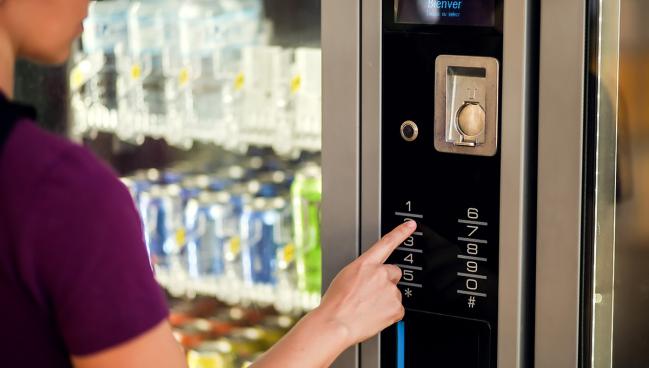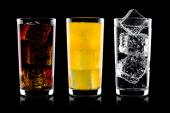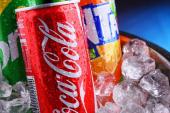Sugary Drinks Up CVD and All-Cause Mortality Risks in Type 2 Diabetes
Water, coffee, tea, and low-fat milk should be the drinks of choice for people with type 2 diabetes, say researchers.

When it comes to quenching thirst, people with type 2 diabetes should be reaching for coffee, tea, water, or even fruit juice to reduce their risks of cardiovascular disease and all-cause mortality, a new analysis concludes. Sugar-sweetened beverages, on the other hand, are linked to increases in risk, report investigators, and should be avoided.
The study is a reminder to people with type 2 diabetes that they need to pay close attention to their diet, senior investigator Qi Sun, MD, PhD (Harvard T.H. Chan School of Public Health, Boston, MA), told TCTMD.
“It’s particularly important to avoid any beverages that can worsen their glycemia situation or increase their risk of cardiovascular outcomes,” said Sun. “Cardiovascular disease is the number one cause of death, particularly for patients with type 2 diabetes. If there’s any risk factor [for CVD], type 2 diabetes patients should really be careful about avoiding it to reduce their risk.”
The health effects of different beverage types have been studied quite extensively in the general population. Plain water, low-fat milk, and coffee, which have a low-energy density, have all been linked to a lower incidence of obesity, type 2 diabetes, CVD, all-cause mortality, and disease-specific mortality, whereas sugar-sweetened beverages have been associated with a higher risk of type 2 diabetes and CVD. Whole-fat milk consumption has also been associated with a higher risk of developing CVD.
“There’s a really solid base of evidence, but the evidence is primarily derived from a generally healthy population,” said Sun. “If you look at the publications, they typically exclude people with chronic disease at baseline—people with heart disease, diabetes, sometimes even cancer. The evidence hasn’t been there for patients with type 2 diabetes. Our study is really the first one to specifically look at people with type 2 diabetes, looking at not one or two types of beverages, but all types of beverages consumed by the US population.”
Results Mirror General Population
The new study, which was published last week in BMJ, includes 15,486 men and women (average age 61.3 years; 73.6% female) with type 2 diagnosis enrolled in the Nurses’ Health Study and Health Professionals Follow-up Study who were followed for an average of 18.5 years. During this time, 22.3% developed fatal and nonfatal coronary heart disease, including the need for CABG surgery and MI, as well as fatal and nonfatal stroke. Slightly less than half (49.3%) of participants died during follow-up.
Sugar-sweetened beverages included colas and other carbonated drinks, as well as fruit punches, lemonade, or other fruit drinks. Artificially sweetened beverages included a range of low-calorie colas and drinks with and without carbonation. Fruit juices included apple, orange, grapefruit, or other juice while low-fat milk was defined as skimmed, 1%, or 2% fat.
Those with the highest intake of sugar-sweetened beverages, which was defined as more than one serving per day, had a 20% higher risk of all-cause mortality, a 25% higher risk of CVD incidence, and a 29% higher risk of CVD mortality compared with those who consumed less than one sugar-sweetened beverage per month. In contrast, higher amounts of coffee, tea, water, and low-fat milk were associated with a 26%, 21%, 23%, and 12% lower risk of all-cause mortality, respectively. There was no association between drinking artificially sweetened beverages or fruit juice and all-cause mortality, CVD incidence, or CVD mortality.
Those with the highest consumption of coffee (> 1 serving per day) had an 18% lower risk of CVD incidence compared with those who drank less than one coffee per month. High consumption of low-fat milk was associated with a lower risk of CVD incidence and CVD mortality, while those who drank the most water had a 23% lower risk of CVD mortality. People with high intakes of full-fat milk had trends toward higher risks of all-cause mortality and CVD mortality.
These results, said Sun, mirror the benefits seen in the general population.
“That’s reassuring for type 2 diabetes patients,” he said. “There’s no exception. They should avoid sugar-sweetened beverages, whole-fat milk. They should really switch or start consuming healthy beverages—tea, water, low-fat milk.”
Swapping Out Colas for Coffee
In their analysis, the researchers looked at how drinking patterns changed after the diabetes diagnosis. Increasing coffee consumption from before to after the diagnosis was associated with a significantly lower risk of all-cause mortality. Compared with those who didn’t change their coffee habits, increasing coffee consumption was associated with an 18% lower risk of all-cause mortality. The same patterns were observed for increasing tea and low-fat milk after the diabetes diagnosis.
Finally, the group analyzed the theoretical effects of switching out beverages for different drinks. Importantly, they found that substituting one serving of coffee per day for a sugar-sweetened beverage was associated with an 18% lower risk of all-cause mortality. Swapping tea, water, and low-fat milk for a sugary drink was associated with a 16%, 16%, and 12% lower risk of all-cause mortality, respectively. Additionally, swapping in one serving of coffee, tea, water, and low-fat milk for a sugar-sweetened beverage was associated with a 20%, 24%, 20%, and 19% lower risk of CVD mortality. Replacing sugar-sweetened beverages with artificially sweetened ones was also associated with a lower risk of all-cause and CVD mortality.
“If people choose to change, absolutely, there is a more favorable direction if you switch from sugar-sweetened beverages to coffee, tea, or water,” said Sun. “That would be a really wise choice.”
With respect to the effects of artificially sweetened beverages, Sun pointed out that the field has seen discrepant findings over the last few years. For example, some studies have shown that replacing sugar-sweetened beverages with artificially sweetened drinks increased the risk of obesity, metabolic diseases, and mortality in the general population. However, meta-analyses of the randomized, controlled trials have shown that artificially sweetened beverages did not affect blood glucose levels.
“A lot of times, people choose to drink artificially sweetened beverages for different reasons,” said Sun. “They become health conscious but want to still enjoy sodas without the sugar. However, they might already have elevated baseline [cardiovascular] risk. The switch might be too late and you’ll still observe a higher risk in these individuals.”
Reverse causation could possibly explain the higher risk of cardiovascular events observed in those prior studies, said Sun.
In an editorial, Nita Forouhi, MRCP, PhD (University of Cambridge, England), says the observational findings can’t be considered “cause and effect,” but that the results are consistent with those from small-scale intervention studies looking at intermediate endpoints such as weight, fat mass, and insulin levels. The new study, she says, “credibly extends our understanding of the health implications of different beverages to adults with type 2 diabetes.”
Forouhi agrees the choice of beverage for people with type 2 diabetes “clearly matters.”
“The case for avoiding sugar-sweetened beverages is compelling, and it is supported by various fiscal measures in more than 45 countries,” she writes. “Although the evidence is less clear for artificially sweetened beverages and fruit juice, it is reasonable to shift the focus to drinks that are most likely to have positive health impacts: coffee, tea, plain water, and low-fat milk.”
Michael O’Riordan is the Managing Editor for TCTMD. He completed his undergraduate degrees at Queen’s University in Kingston, ON, and…
Read Full BioSources
Ma L, Hu Y, Alperet DJ, et al. Beverage consumption and mortality among adults with type 2 diabetes: prospective cohort study. BMJ. 2023;381:e073406.
Forouhi N. Beverages and health outcomes in adults with type 2 diabetes. BMJ. 2023;381:p841.
Disclosures
- Sun and Forouhi reports no conflicts of interest.





Comments